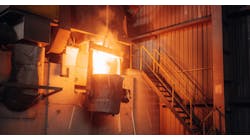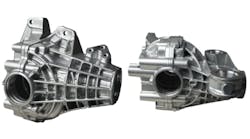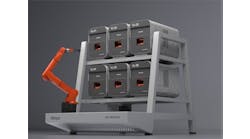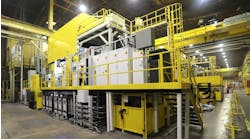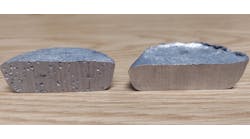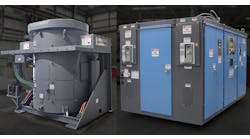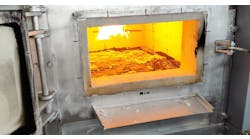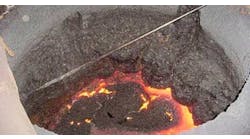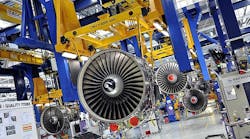Directors of Alcoa approved a plan to separate the organization into two independent, publicly traded companies, one that comprises the primary aluminum production activities (bauxite, alumina, aluminum, casting, and energy), retaining the Alcoa name; and one that incorporates its “innovation and technology-driven” lines of business, including the Global Rolled Products, Engineered Products and Solutions, and Transportation and Construction Solutions divisions.
Alcoa’s investment casting and forging operations would be included in the new company, which as yet is unnamed. In July, having completed its acquisitions of Firth Rixson Ltd., Tital, and RTI International Metals, Alcoa reorganized Engineered Products and Solutions (EPS) segment around its activities I the critical aerospace market. EPS — which now becomes one of three components of the spin-off company, includes a) Alcoa Titanium & Engineered Products, b) Alcoa Fastening Systems & Rings and Alcoa Forgings & Extrusions, and c) Alcoa Power & Propulsion.
At that time, too, it formed the Transportation and Construction Solutions segment, which includes the former Alcoa Wheel & Transportation Products, and Alcoa Building & Construction Systems.
The new “upstream business” will be particularly focused on the aerospace industry (with products like jet engine and industrial gas turbine airfoils, and aerospace fasteners) and the aluminum-intensive automotive market, via rolled products and aluminum commercial truck wheels.
Alcoa emphasized that both new companies will attract investors “best suited to their unique value proposition and operational and financial characteristics.”
“In the last few years, we have successfully transformed Alcoa to create two strong value engines that are now ready to pursue their own distinctive strategic directions,” stated chairman and CEO Klaus Kleinfeld. “After steering the company through the deep downturn of 2008, we immediately went to work reshaping the portfolio. We have repositioned the upstream business; we have an enviable bauxite position and are unrivalled in alumina, we have optimized Aluminum, flexed our energy assets, and turned our (primary aluminum) casthouses into a commercial success story. The upstream business is now built to win throughout the cycle.”
He continued: “Our multi-material value-add business is a leader in attractive growth markets. We have intensified innovation, made successful acquisitions, shed businesses without product differentiation, invested in smart organic growth, expanded our multi-materials profile and brought key technologies to market; all while significantly increasing profitability.”
The separation will be carried out in the second half of 2016.
